Site-specific installation, manga, SMART board, one-way mirror, search station
Commissioned by Asia Culture Center
Curated by Hyemi Oh, Liwon Lim
Photo by Asia Culture Center
-
Unbanning Data: Revelation of Carceral Censorship’s Racial Discrimination
Joo Yun Lee (Maryland Institute College of Art)
The Un/Banned Image Library: A Case of Manga draws our attention to prison censorship by examinig and compiling lists of banned manga books. Sue Jeong Ka’s project, to be presented at the Asia Culture Center (ACC) in Gwangju, is an extension of her on-going project centering banned books in the U.S. prisons. This series of work raises awareness about carceral censorship that systematically prohibits books based on their content and their author’s race, ethnicity, and possible sexuality. While expressing these concerns, Ka’s newly developed banned book database and experiential installation expose the fact that manga, a genre of comics and graphic novels, is one of the frequently banned publication types. More importantly, given that this specific genre is mostly created by East Asian contents creators, Ka’s project reveals that prison’s banning of manga reflects broader patterns of racial, social, and cultural discrimination, especially, against Asian visual content and its creators.
As Rob Kitchin underscores, “data are representative in nature” and therefore subject to analysis and interpretation. 1 Ka’s data-driven project shows that the censorship with the aim of control and edification prohibits the incarcerated people from accessing information and knowledge, while deepening the marginalization of Asian contents creators by categorically banning the most instances of manga from prisons. Furthermore, Ka’s banned book database problematizes how the prison justifies this genre’s suppression through the arbitrary classification of manga as a sexually explicit and violent visual medium. Ka insists that “prison personnel’s handling of manga reflects broader patterns of prison censorship’s racial discrimination against content creators.” 2 Ka’s tracking these patterns is grounded on “critical reflection on database and data infrastructure,” which, as Kitchin underscores, “has been largely absent with respect to big data, open data, and the scaling of small data, with the focus to date being more technical and instrumental in nature.” 3. In this way, Ka’s banned book dataset epitomizes the nature of data as a double-edged sword. Speaking to this dynamic in Data Feminism (2020), Catherine D’Ignazio and Lauren F. Klein asserts, “data have been used as a weapon by those in power to consolidate their control—over places and things, as well as people.” At the same time, the antagonistic engagement of artist, activist and media practitioner with data evinces “how the power of data can be wielded back.” 4 By synthesizing and circulating the banned material datasets, Ka’s project aims to “reveal[s] the discriminatory implications of carceral system’s color-blind policies.” 5 This remarkable example of social data practice might be understood as a gesture of (and even toward) unbanning because Ka provides information and insight about material withheld. This undertaking is timely, considering “the relatively homogenous race, ethnicity, and socioeconomic status” of data-oriented art practices and how this lack of diversity extends to the tech field. Ka’s investigation into the social invisibility of ethnic and sexual minorities thus amounts to a critical intervention. 6 Ka’s project has evolved from her long-term research and practices dealing with racism, injustice, civil rights, and LGBTQ+ experiences of incarceration in the United States. To be sure, Korea has its own distinct socio-politics, cultural, history and ideology around carceral systems and censorship. In this national context, The Un/Banned Image Library will take on different interpretation. It will expand through interaction with Korean audiences while continuing to serve as, what Ka calls, “collaborative foundation for better carceral information exchange.” 7
-
1 Rob Kitchin, Data Revolution: Big Data, Open Data, Data Infrastructures & Their Consequences (Los Angeles: Sage Publications,
2014): 1.
2 Sue Jeong Ka, artist’s statement (2022), n.p..
3 Kitchin, Data Revolution, 21.
4 Catherine D'Ignazio and Lauren F. Klein, Data Feminism (Cambridge, MA: The MIT Press, 2020): 15-17.
5 Sue Jeong Ka in discussion with the author, November 2022.
6 Luke Stark and Kate Crawford, “The Work of Art in the Age of Artificial Intelligence: What Artists Can Teach Us About the Ethics
of Data Practice,” Surveilance & Society 17, no. 3/4 (2019), 445.
7 Ka, artist’s statement (2022), n.p..
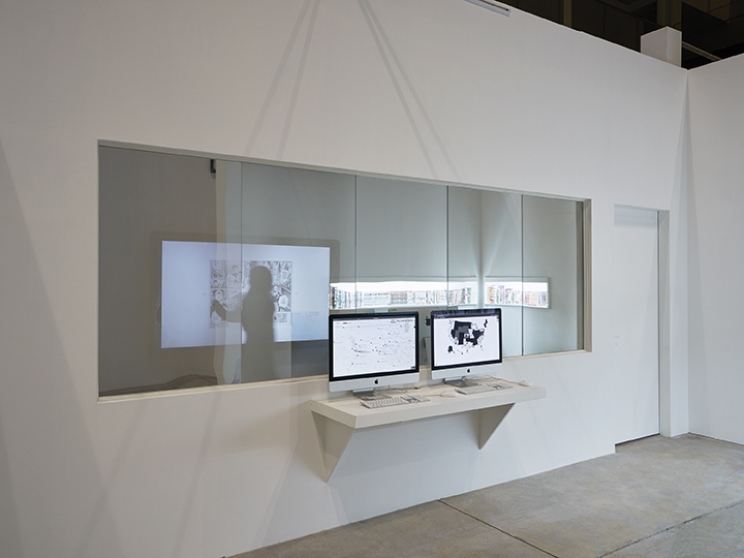
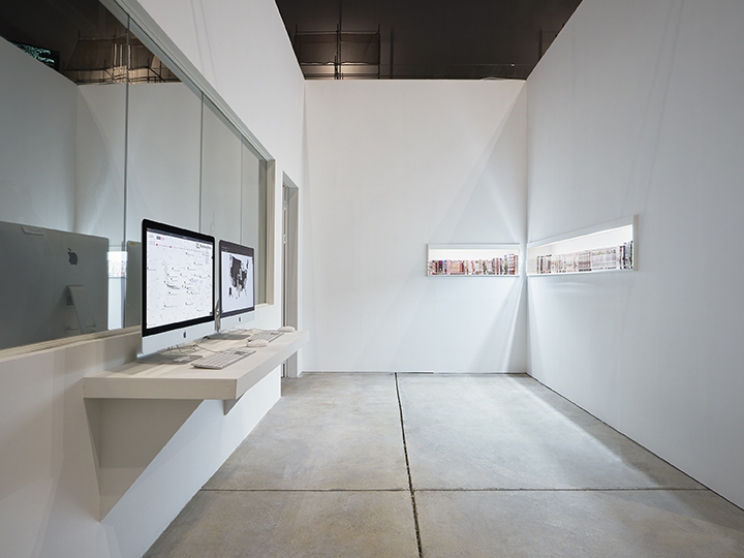
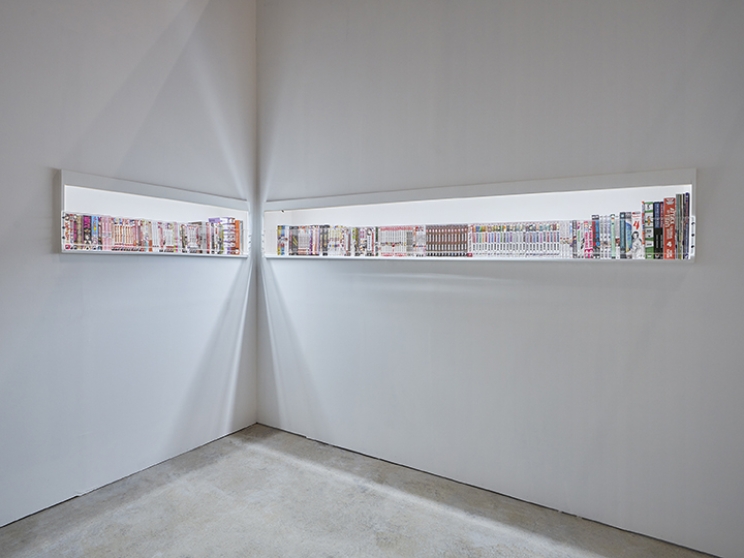
Banned Manga, manga, 2022
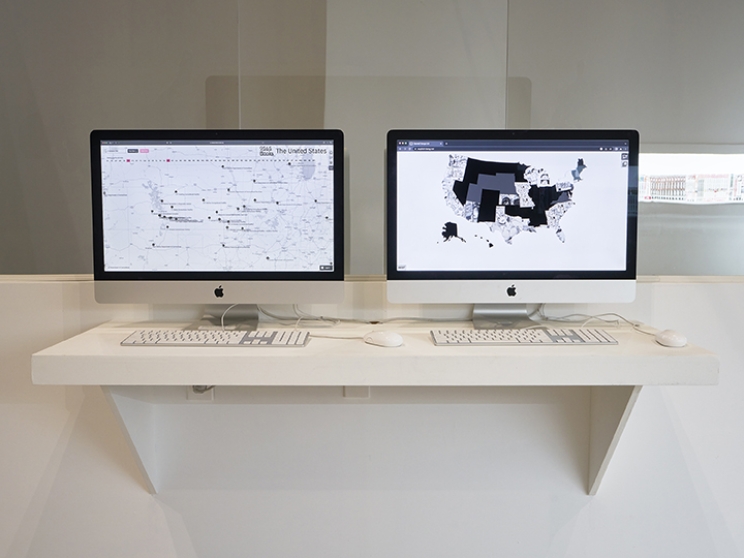
The Banned Book List, web database, 2019-Ongoing (right), Explicit!, web database, 2022-Ongoing (left)
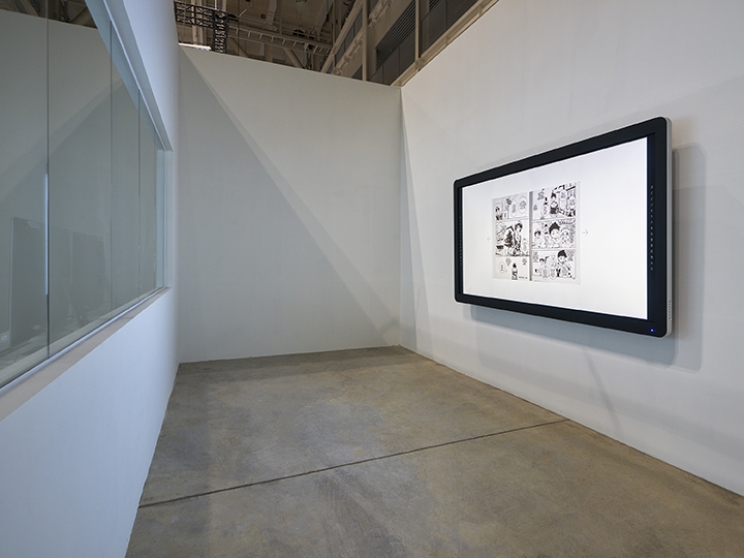
Explicit!! (detail view), SMART board, web database, one-way mirror, 2022
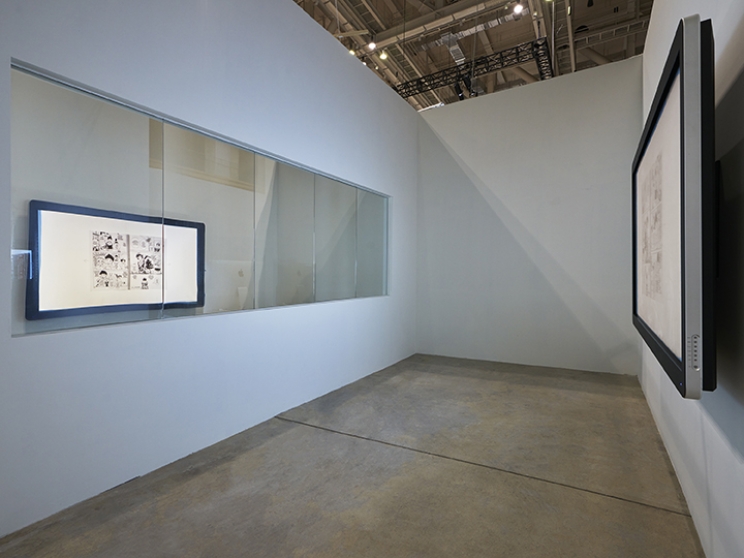
Explicit!! (detail view), SMART board, web database, one-way mirror, 2022